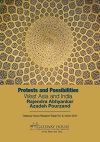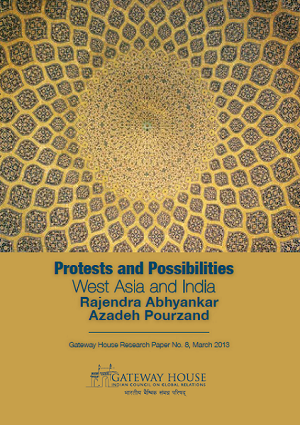Abstract
West Asia is undergoing momentous political changes, which have created new challenges and opportunities for India’s engagement in the region. The changes mark a new inflection point for India’s West Asia policy. This paper will analyse the origin and trajectories of these shifts in order to assess their actual and potential impact on India.
India has interacted with three civilizations to its West since antiquity – Persian, Arab and Turkish – and has maintained close ties with each. India’s relations with the Arab and Islamic world, rooted in history and culture, have been enriched over the centuries by a prolific and mutually-beneficial exchange of goods, services, people and ideas. This long-standing contact imparts a unique character to India’s relations with the region.
The political ties between India and the Arab world expanded significantly in the decades after India’s Independence in 1947. With the end of colonialism, the independent countries of West and South Asia adopted a policy of non-alignment in a world sliding into the Cold War. Non-alignment brought a pan-Arab credo of liberty, unity and socialism into an acceptable international political framework without threatening the internal stability of the weak West Asian regimes that came to power in the post-colonial period.
India sees ‘West Asia’ as three distinct sub-regions – the Gulf, West Asia or the Mashreq and North Africa or the Maghreb, which it considers part of its proximate neighbourhood. (See map on page 6). India no longer refers to the region as the ‘Middle East’, a Eurocentric term based on British naval strategy, adumbrated by the naval historian Alfred Thayer Mahan (1840-1914). In this paper, the authors will use the terms ‘Middle East’ and ‘West Asia’ alternately, depending on whether an international or an Indian view is being presented.
Related reading:
1. You can read a précis of this paper, here.
Gateway House hosted a discussion on this paper on February 11, 2013. You can view the event here.
You can download the PDF version of this paper, here.
Rajendra M. Abhyankar, is a former Indian Ambassador to several West Asian nations and is Chairman, Kunzru Centre for Defence Studies & Research,
Azadeh Pourzand is Associate Fellow, Gateway House.
This paper was exclusively written for Gateway House: Indian Council on Global Relations. You can read more exclusive content here.
For interview requests with the author, or for permission to republish, please contact outreach@gatewayhouse.in.
©Copyright 2013 Gateway House: Indian Council on Global Relations. All rights reserved. Any unauthorized copying or reproduction is strictly prohibited.



